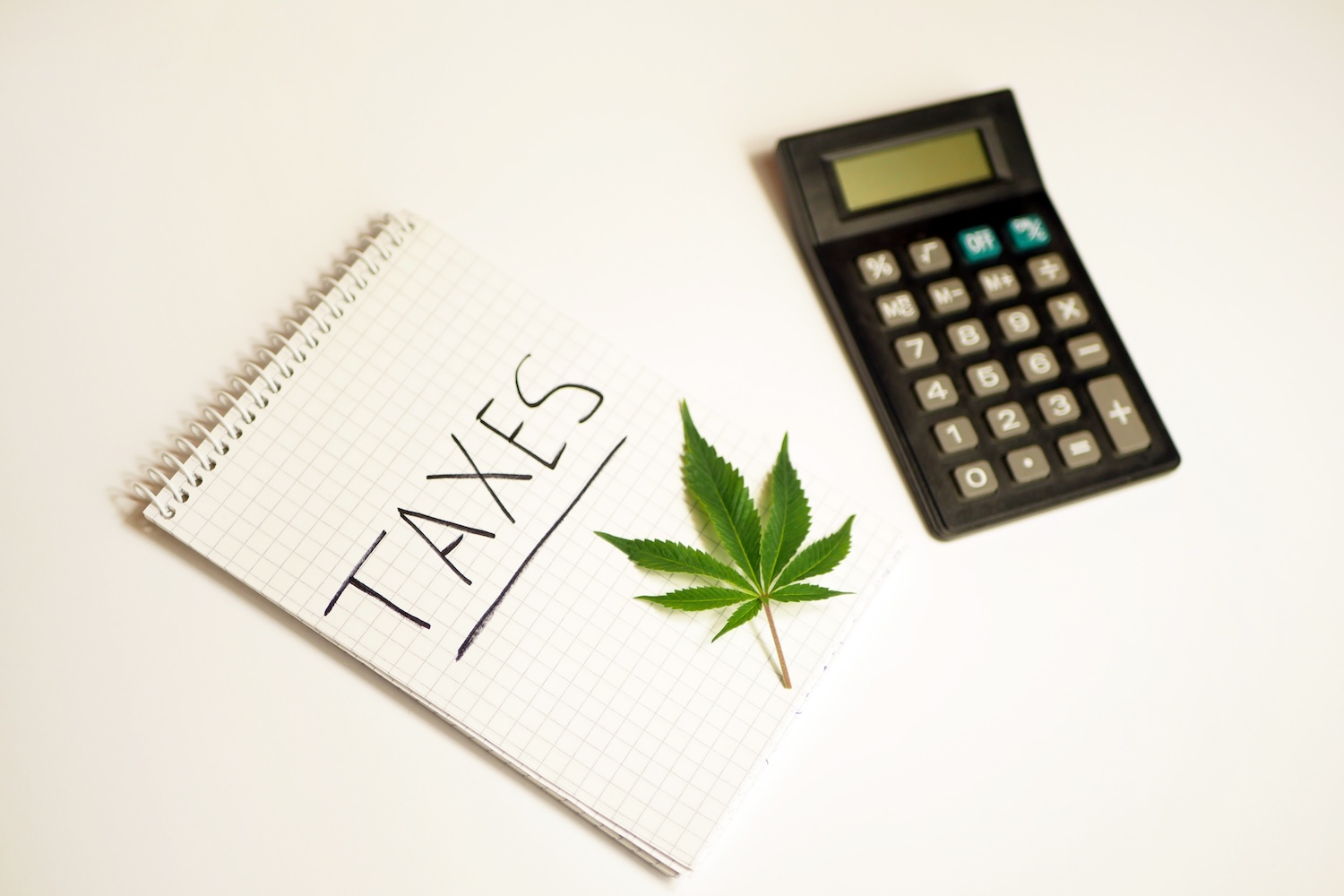BREAKTHROUGH OR BUREAUCRATIC BOOMERANG?
A small sticker, big signals…
For the first time in German history, an official tax stamp has been issued for THC-free CBD flowers – proudly carried by Sanaleo, one of the country’s leading CBD producers. For the company and the German Cannabis Industry Association (BvCW), this step represents more than just a new tax burden: it’s a clear signal that CBD products no longer fall under the new Cannabis Act (KCanG). The official banderole now serves as a seal of approval — proof that these products are legally considered industrial hemp. And only what’s legally defined as such is even subject to taxation in the first place. A clever move for creating legal clarity — but not everything that glitters is green. The CBD industry might soon face serious, unforeseen challenges.
A SMALL STICKER WITH MASSIVE IMPACT — AND EVEN BIGGER QUESTIONS
There’s no doubt that issuing tax stamps is a regulatory milestone with significant implications for the CBD industry. CBD flowers are now being treated like plant-based smoking products, taxed similarly to tobacco alternatives. Sounds like a clear legal framework? In theory, yes. But reality paints a more complicated picture: while the Bielefeld customs office issued the first stamps, the General Customs Directorate remains skeptical — clinging to its outdated interpretation. That interpretation still classifies industrial hemp with trace amounts of THC as cannabis with potential for misuse.
In other words: CBD flowers remain cannabis under German law, even without psychoactive effects.
THE ABSURDITY OF PAST REGULATIONS
With the introduction of the Cannabis Act, there was hope for a long-overdue legal framework for industrial hemp. But things took the usual German turn into regulatory absurdity. While THC-rich cannabis enjoyed partial legalization, CBD flowers with less than 0.3% THC were still suspected of abuse potential. That’s like comparing apple juice to vodka — because of its fermentation potential.
It’s worth noting: Germany is alone in this logic, effectively cutting itself out of international markets while ignoring the economic value of an already thriving CBD industry. So while the tax stamp offers hope for better clarity, it raises a key question: At what cost?
NOTHING NEW IN EUROPE – TAX STAMPS ALREADY EXIST ELSEWHERE
Germany’s tax move isn’t revolutionary. Countries like Austria, Luxembourg, and Switzerland have been there before. But were the results positive? Not quite.
In Austria, a full evaluation is underway, as new taxes on CBD flowers may collapse the local market. Switzerland, in fact, revoked the CBD tax model — it was too destructive for small- and mid-sized companies. The same thing happened in Luxembourg.
Since 2021, Luxembourg has added a 33.75% tobacco tax on top of regular VAT for THC-free CBD products — a devastating financial hit. Some businesses have since reported up to 30% revenue losses, while many smaller companies folded under the pressure. Worse still, the timing of the tax introduction — right in the middle of the COVID-19 pandemic — proved to be a fatal miscalculation.
This shows how sensitive the CBD sector is to new taxation. Strong consumer demand alone cannot save businesses if policy pushes them over the edge.
TAX REVENUE VS. MARKET DAMAGE
Yes, governments love new sources of income — and CBD taxation promises exactly that. But what’s often ignored is the disproportionate pressure on smaller businesses. Large companies like Sanaleo have prepared for this moment, investing years in infrastructure and compliance. But many small producers and retailers don’t have the budget or logistical capacity to adapt to the new rules — meaning they’ll likely vanish.
LEGAL PROGRESS? YES, BUT HANDLE WITH CARE
So is this taxation move real legal progress for CBD? Yes — but with major caveats.
The legal grey zone remains: is industrial hemp with minimal THC content cannabis or not under the new law? The answer still depends on which authority you ask. And that’s despite the Federal Court of Justice (BGH) making it clear back in 2022 that THC-free CBD flowers are not narcotics.
Recent rulings from courts in Freiburg and Düsseldorf further suggest that Germany’s previous refusal to grant tax stamps to CBD products likely violates European law.
SO WHAT NOW? A ROLL-OUT WITH RISKS
Sanaleo has announced plans to roll out CBD flowers with tax stamps across Germany in July 2025. Industry experts see this as a possible catalyst for clarity — but also a filter for the market. Those who can’t meet the new demands will be left behind.
A win-win? Dream on!
FINAL THOUGHTS: CBD TAX STAMP — BLESSING OR BURDEN?
The introduction of the first official tax stamp for CBD flowers is undeniably a major step toward greater legal recognition and acceptance of CBD products in Germany. While major players are celebrating this move as a milestone, smaller businesses are bracing for a regulatory and financial storm. Experiences from other European countries show clearly: taxation isn’t a one-size-fits-all solution. It’s a tightrope walk between regulation and accessibility. If Germany wants to avoid following Switzerland’s retreat, it needs one thing above all: clarity, foresight, and a strong grasp of economic realities. Because sometimes it takes a second look to grasp the full picture. And for many CBD businesses, that tiny tax stamp could mark the beginning of the end. What’s needed now is a fair and consistent regulatory framework for both CBD Oil and CBD products, one that recognizes them as industrial hemp and excludes them from the Cannabis Act once and for all.
